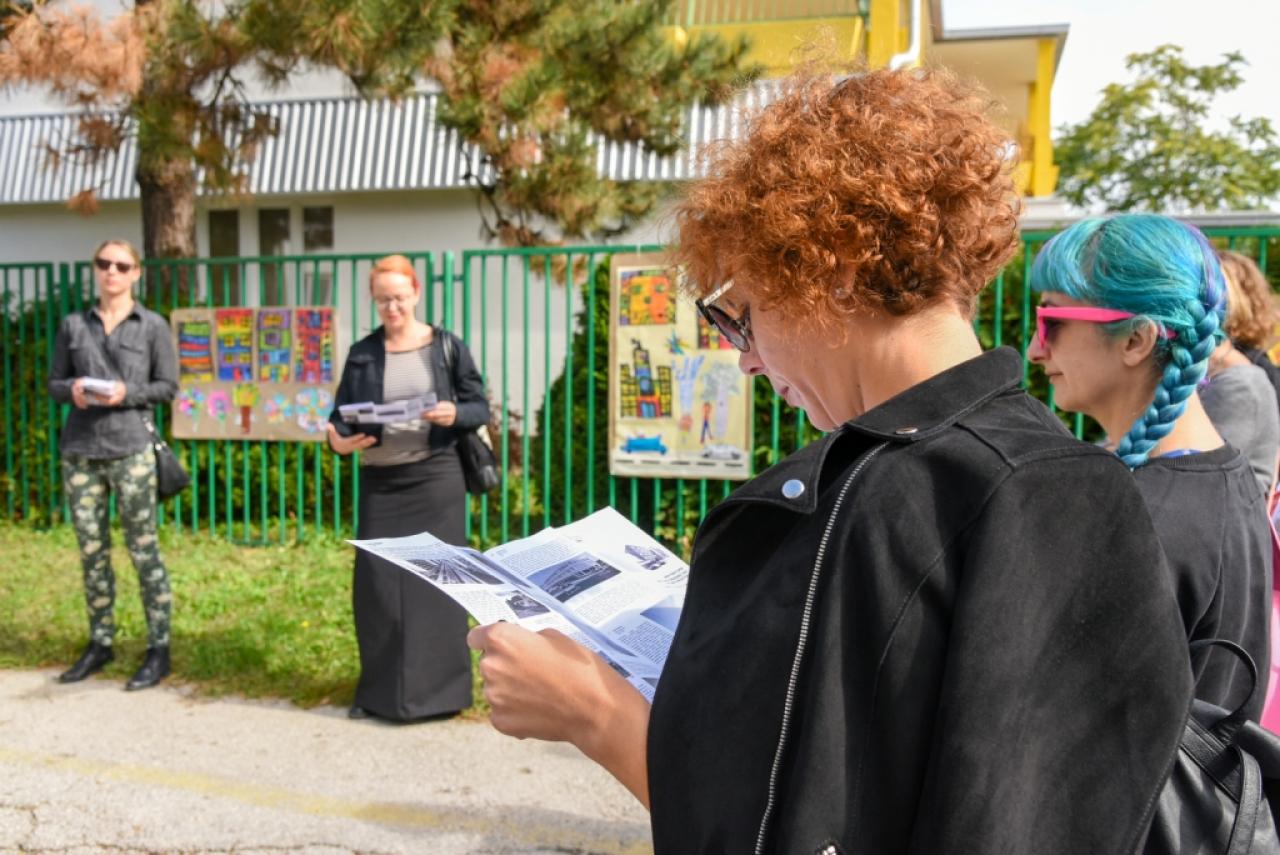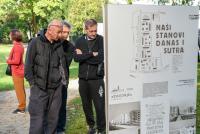
The URBACT Come In Talking Houses/Shared Stories Transfer Network had another successful festival modelled on the Budapest 100 Open House Weekend held in Varaždin.
As we had the opportunity during 2019 to become acquainted with the good practice of Budapest 100; with its purpose, methods, principles, challenges, communication and the opportunity to visit the Budapest 100 Open House Weekend and see good practice at work, the year 2020 was time to transfer. Gradually we were starting to understand our task and see for ourselves the opportunities and obstacles in our way. Although the good practise is easily transferable, it needed some adaption to our context, especially regarding the pandemic of COVID-19.
We organised a community Festival in the neighbourhood Đurek, an area with residential buildings. The construction of the neighbourhood Đurek started 60 years ago; hence, the Festival was named Đurek 60. The neighbourhood was built so as to aid the development of this part of the city and to make new housing for the growing population in the city. There are several types of buildings and all of them are surrounded with lots of trees and green areas.
The main idea of transferring the good practise was to meet the people behind the doors of residential buildings. Who lives there now and who has lived there before and what stories they could tell. In line with the motto of the festival (i.e. “every house is interesting”) we started the research about the buildings in the neighbourhood.

Although we were researching the architectural heritage of this area, this was not the only focus; it was not all about the buildings. We needed the knowledge about the area to approach the residents and initiate common discussion about the revival of this area and to inspire the community to participate in the Festival. Our intention was to bring the community together; to build up its strength and reduce urban social isolation by using the built environment as a tool.
The research, although extensive work, was quite easy and many people were involved. The Association of the Architects Varaždin gathered official, historical data about the planning and construction of the neighbourhood. We had other volunteers too - citizens that were collecting data about the history of this area, stories about the important historical figures after which the neighbourhood was named.
The main challenge for us was to get the community to become involved in the Festival and to find volunteers. There were different opinions how to achieve that and success came through private contacts and one-on-one meetings. We managed to get several highly motivated people to participate in the Festival (musical performance, storytelling, exhibition about the past of the neighbourhood, exhibition of children’s art works) and to work together.
At the same time due to pandemic COVID-19, while trying to reduce social isolation, we were keeping a social distance between ourselves and other people who are not from our household. The pandemic COVID-19 affected the Festival and we had to make some compromises; e.g. we had to give up our plan to enter some of the buildings and apartments, number of points of interest all around the area was decreased and number of people involved was less than planned, but we adapted and succeeded.
Generally speaking, it was a unique happening for us; we had a chance to get a glance at diverse experiences, to acknowledge and appreciate other perspectives, adapt to new situations and in the same time to build a stronger community. I find that to be a good transfer.
Goranka Grgic
